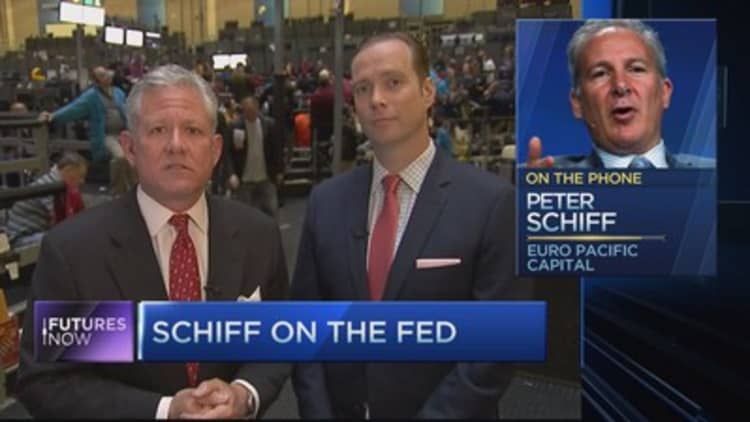
With her Wednesday comment that equity market valuations are "generally quite high," Federal Reserve chair Janet Yellen has spurred much chatter, if not a major market reaction.
While it was almost certainly not her intention, one ancillary effect of her comment has been to soundly disprove one of the biggest conspiracy theories about the Fed's easy-money policies.
In recent years, it has been popular for Fed skeptics to claim that the true goal of massive bond buying and low benchmark interest rates has not actually been the stated claim of bring the economy back from the brink and decreasing the unemployment rate to normal levels—both of which appear to have been accomplished.
Read More US created 223,000 jobs in Apr vs. 224,000 expected; unemployment rate at 5.4%
The true goal of the Fed's policies, some suspected, has been to send stock prices higher as part of a surreptitious plot to create the "illusion" of economic growth.
Over the years, comments from Fed officials have made it plain that they watch asset prices carefully. Now, the idea that the Fed is a cheerleader of ever-rising prices has been cast into doubt.
"I don't really know why she chose to say that," said Euro Pacific Capital's Peter Schiff, one of the Fed's loudest doubters. "I mean, I don't really put much stock in anything she says."
However, when pressed by trader Scott Nations on CNBC's "Futures Now" Thursday, Schiff sounded a bit befuddled about how to interpret Yellen's words.
"I doubt she's trying to convince people to sell stocks, when you know that the very goal of quantitative easing... was to lift asset prices. So why would they intentionally undo what they deliberately set out to do?" he asked.
'Letting the air out'
Of course, the Fed's biggest concern about asset prices now is likely not that they are too low, but that they are leading to potential macroprudential risks. In other words, stocks have risen so high that they could quickly move lower, disrupting the economy in a serious way.
"Perhaps she was trying to let the air out of the keg to stop it from foaming," suggested Michael Block, chief strategist at Rhino Trading Partners.
That said, for Block, is simply reinforces that the Fed is always keeping a "keen eye" on asset prices.
"What happens in markets affects macro and fundamentals, and vice versa—it runs in a virtuous and vicious cycle," he told CNBC. "The Fed is clearly aware of that too."
—By CNBC's Alex Rosenberg.
Watch "Futures Now" Tuesdays & Thursdays 1 p.m. ET exclusively on FuturesNow.CNBC.com!




